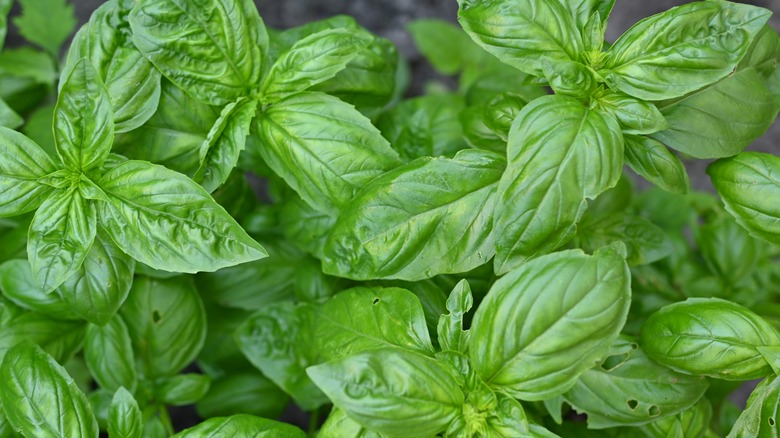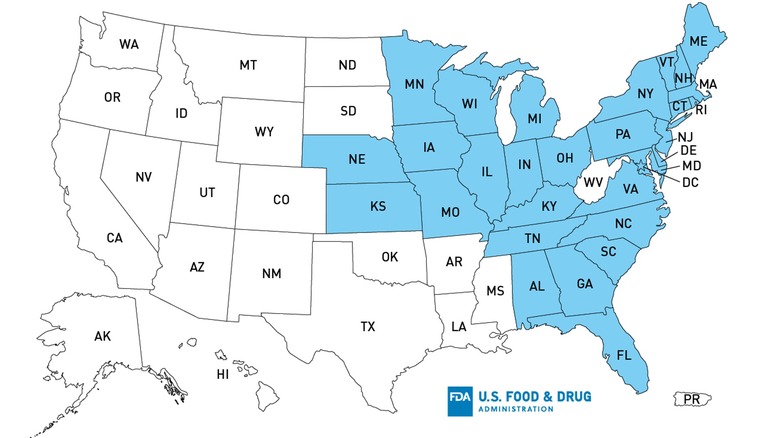What You Need To Know About The Trader Joe's Basil Recall
Trader Joe's is voluntarily recalling Infinite Herbs organic basil over a potential salmonella outbreak that was traced back to the product's supplier. Customers who purchased the 2.5 ounce package between February 1 and April 6 are strongly discouraged from consuming it in order to avoid sickness. Luckily for those who live on the west coast, the majority of possibly contaminated basil was distributed and sold on the eastern side of the U.S. According to the FDA in collaboration with the CDC, twelve people in seven different states including Minnesota, Wisconsin, Montana, Georgia, Florida, New Jersey, and Rhode Island, have been infected with salmonella traced back to Infinite Herbs organic basil sold at Trader Joe's.
In an announcement, Trader Joe's is offering a refund to customers who purchased the product in the affected states within the last two months. The grocery store has reportedly removed all the Infinite Herbs organic basil from shelves, so shoppers at Trader Joe's can now purchase other available herbs without worry of contamination. This product recall is the newest to be announced from the grocery store chain, although it's not the only time TJ's has had food safety incidents. Just last month, Trader Joe's recalled their Steamed Chicken Soup Dumplings over the possible presence of hard plastic within the product.
The investigation is ongoing
The FDA/CDC investigation found that the origins of the outbreak came from supplier Infinite Herbs in Miami, Florida. People who reported exposure to the possibly contaminated basil reported experiencing salmonella-related symptoms between 12 hours to 72 hours after eating. Symptoms of infection include uncomfortable indigestion, fever, and stomach cramping.
The extent of the outbreak is still unknown as the investigation is ongoing, but experts recommend throwing out Infinite Herbs organic basil purchased at Trader Joe's. As most of the contaminated basil was sold between February and early April, the FDA concluded that most of the product sold is "likely past its shelf-life," so removing it from your fridge should not be an issue. Unfortunately for those who may still have this product hanging out in the fridge, the CDC notes that cross-contamination between products can occur when contaminated products come into contact with other foods. So once the contaminated basil has been removed, give your refrigerator a thorough cleaning to eliminate the possibility of salmonella spreading.

